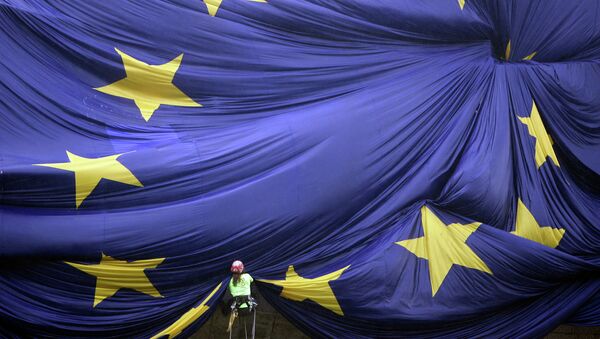The European Union has struggled to tackle diverse challenges, both domestic and global, including the 2008 global financial collapse, the Greek crisis, the massive influx of refugees, terrorism and now Brexit, fueling concerns that the supranational institutions are increasingly dysfunctional and disconnected from reality.
Some in Brussels understand that the union has too much on its plate and the European integration project will have to be revised.
"Today we have to admit that this dream of one European state with one common interest, with one vision…one European nation, this was an illusion," EU Council President Tusk said in May.
These remarks come in sharp contrast to how EU officials viewed the state of the union back in the day. They often congratulated themselves that the bloc managed to come out of each new crisis stronger. They also though that nothing could shake public faith in the union.
"The situation in the Eurozone is particularly unstable, owing to citizens' growing alienation from a distant, technocratic elite; the absence of conventional economic adjustment mechanisms (exchange rates, inflation, public investment, and so on); and tight limits on fiscal transfers, which send powerful signals about the real boundaries of cohesion," Michael Spence, a Nobel laureate in economics, wrote for Project Syndicate.
The latest global financial crisis rocked the European Union, particularly the Eurozone, but nothing will hit the bloc as hard as the UK's looming departure. The Leave campaign has secured 52 percent of the vote in a historic referendum held on June 23. More than 17.4 million people backed the move.
National result of the #EURef announced. 48.1% remain, 51.9% leave. Our official press release here: https://t.co/0MWdUlyRx8 #EURefResults
— Electoral Commission (@ElectoralCommUK) 24 июня 2016 г.
Brexit is no longer an idea to ponder; it is a reality that the EU and its champions will have to deal with.
The UK's decision should serve as a wake-up call to the EU that something needs to be changed.
"The British vote, along with similar strong centrifugal political trends elsewhere, should bring about a major rethink of European governance structures and institutional arrangements. The goal should be to restore a sense of control and responsibility to the electorates," Spence noted.
EU leaders who don't take the right lessons from #Brexit will find themselves in same position as @Number10gov
— Laura Ingraham (@IngrahamAngle) 24 июня 2016 г.



